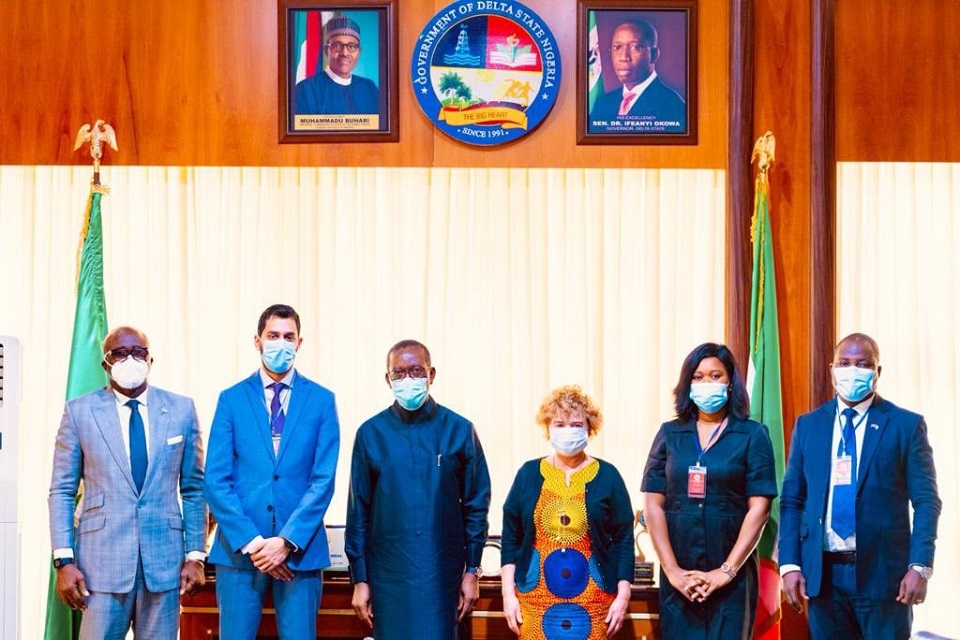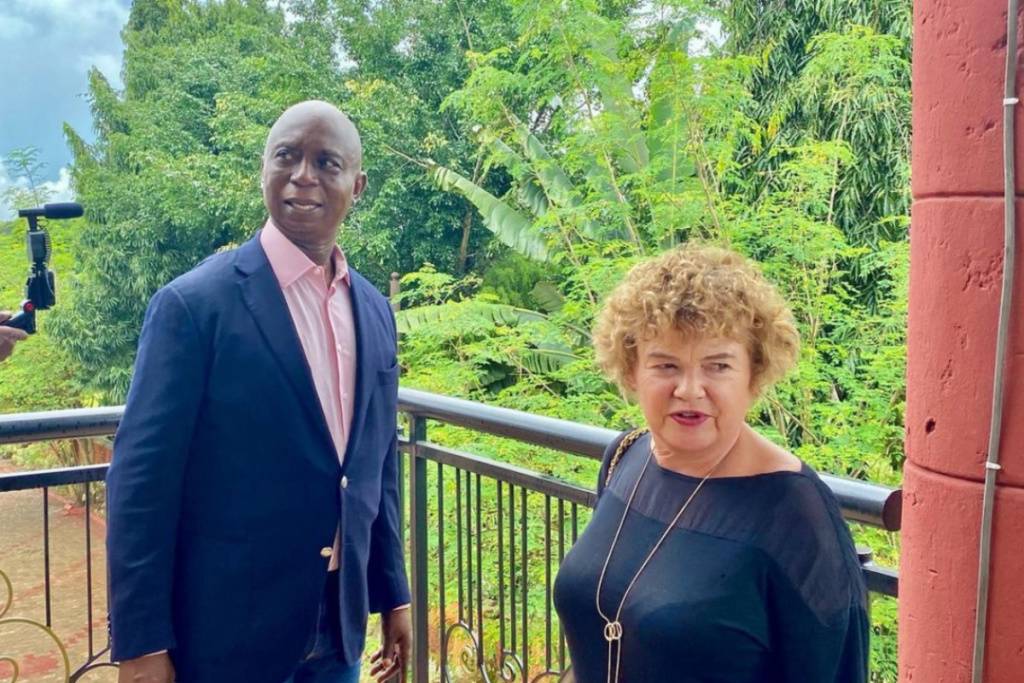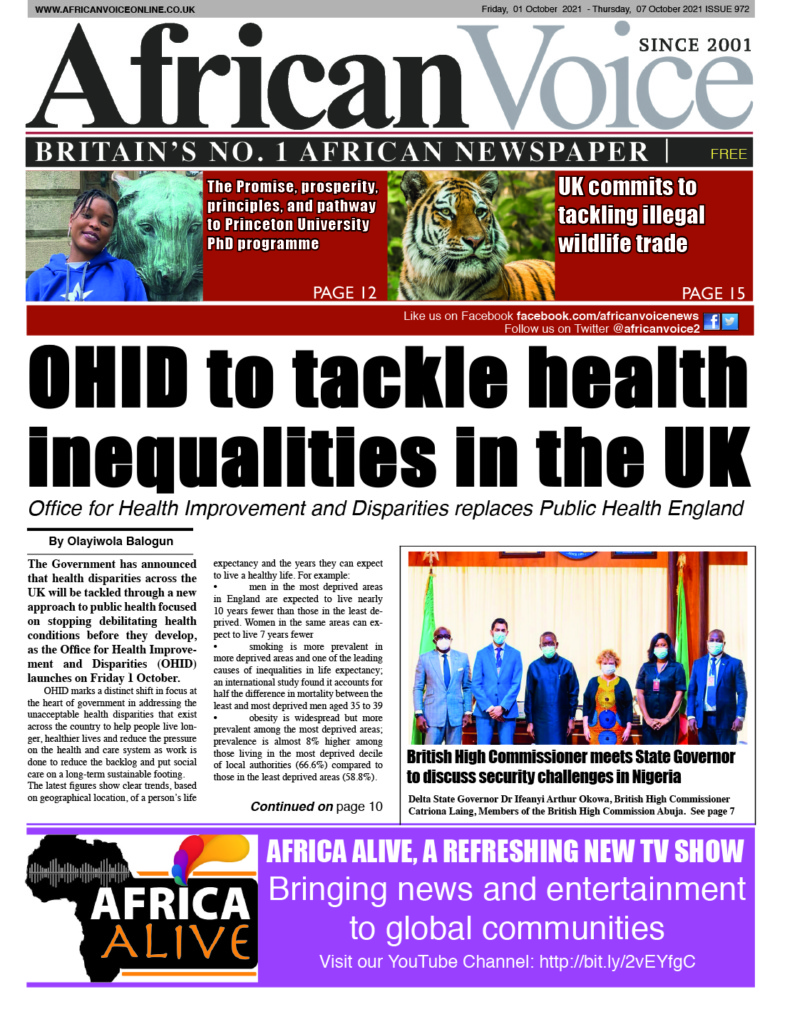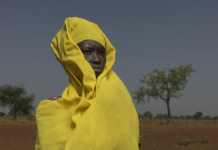
Catriona Laing meets State Governor, Security Group and CSOs to discuss security challenges and measures to improve economic opportunities in the state.
The British High Commissioner, Catriona Laing, visited Delta State between 21 and 22 September for high-level discussions with the state governor and key stakeholders in the state government, civil society and business leaders.
During the two-day visit, the High Commissioner visited the Delta State Governor, His Excellency Dr Ifeanyi Arthur Okowa. They discussed security challenges in the state, efforts to tackle them and measures being taken to improve economic opportunities. They also shared thoughts on improving the business environment in Delta State to create more opportunities.
During her stay in Asaba, the High Commissioner met with the Director General of Delta Hawk, David Tonwe and his team. The High Commissioner received a briefing on the state-backed group’s responsibility of fighting insecurity in Delta state.
In further discussions around security in Delta State, High Commissioner Catriona Laing met with representatives of civil society organisations who gave a run down on the security and climate challenges facing the people of Delta. She spoke about how the challenges can only be addressed through strong and open dialogue between the state and civil society. The High Commissioner was also pleased to learn from the group that female participation in the state is strong.
The High Commissioner also met with the Delta State All Progressives Congress (APC) Director of Communications, who assured the High Commissioner of the party’s plans for a peaceful election in 2023 as well as better female participation and representation.

In advancing local community engagement, the High Commissioner met with Ned Nwoko, initiator of the Ned Nwoko Malaria Project. They discussed progress on his foundation’s malaria education project, and the work of the UK aid funded Support to the National Malaria Programme in Nigeria (SUNMAP2).
The visit to Delta State also presented an opportunity for the High Commissioner to visit the world famous Mungo Park House, where she learnt about future plans to host exhibits celebrating the unique history and ethnographic identity of the area. She also had the chance to learn about the history of the British explorers in Nigeria, Richard and John Lander at the Lander Brothers Anchorage.
Through the UK Government’s Digital Access Programme (DAP), Delta State had previously benefited from its cybersecurity project, which supported SMEs across all states to equip them with knowledge and skills required to identify, protect and respond to COVID-19 instigated cyber threats. Delta State was also a recipient of the recently completed telemedicine project, which provided mental health services and awareness to the most vulnerable people living in rural clusters across Nigeria.
At the end of the visit, the British High Commissioner, Catriona Laing, said: Being here in Asaba has helped me learn at first hand about the security challenges that the people of Delta State face and the ways that the state government is addressing them. The UK is in full support of all efforts to bring peace and prosperity to all of Nigeria including Delta State.
As a strong advocate for the full and equitable participation of women in politics, I was also pleased to learn about plans to increase women’s participation in politics looking ahead to the 2023 elections. Greater female participation It is essential to building stronger and more vibrant democracies and advancing gender equality more broadly.
Further information
Through the Support to National Malaria Programmes (SUNMAP) phases 1 and 2, UK aid provided technical advice and commodities to the Nigerian Government since 2008, enabling the country to launch an unprecedented scale up of malaria control interventions. Between 2010 and 2018, the proportion of Nigerian children under 5 who were found to be infected with malaria reduced from 42% to 23%. Annual deaths due to malaria were slashed from an estimated 154,000 to 95,000, saving thousands of lives, particularly of children.











